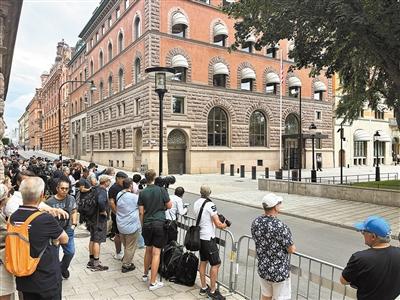Folly of Tariff-driven Reshoring
In April 2025, the Trump administration announced its "reciprocal tariff" policy amid much fanfare, attempting to use the opportunity of trade negotiations to force other countries to pay "protection fees," and promote reshoring of manufacturing to the U.S.
However, although some industries appeared to experience a brief boom under tariff protection in the short term, it was nothing more than an artificially inflated resurgence. Many global media outlets directly pointed out the real problems: soaring costs, disrupted raw material supplies, broken industrial supply chains, and high prices coupled with low quality becoming the norm. This has led to significant losses for enterprises and increased financial burdens on consumers.

Tariff-driven reshoring limits
"The past three administrations have all attempted and failed to reshore lost manufacturing jobs and we expect the latest effort, with Trump expanding use of tariffs in his second term, to be no different," wrote Capital Economics analyst Thomas Ryan.
Ryan explained that tariffs might support limited production reshoring in certain sectors, such as motor vehicles and pharmaceuticals, because much of the imports in these industries come from developed economies like Canada or Europe, where labor costs are not significantly lower than in the U.S. However, in industries such as textiles and machinery, U.S. companies face competition from low-wage workers in developing countries. He also noted that the U.S. faces a shortage of skilled labor in many industries.
Similar sentiment was echoed by other media. According to the U.S. Bureau of Labor Statistics, as cited by The New York Times (NYT), approximately 400,000 manufacturing positions remain unfilled. NYT noted that experts warn that this gap is likely to widen if companies are compelled to shift production from overseas back to new factories in the U.S.
Fortune magazine commented that people in the U.S. want more U.S. factory jobs, but only if they don't have to work them. According to a Cato Institute survey in 2024, 80 percent of Americans believe the country would benefit from increasing manufacturing employment, but only a quarter think they would be personally better off working in a factory.
Structural barriers in industries
Beyond labor shortages, reshoring to the U.S. also means higher production costs, and comprehensive pressures including regulations, labor and tax burdens. Asia's mature supply chains, efficient manufacturing capabilities, skilled technical workforce, and cost advantages are difficult for the U.S. to replicate in the short term.
The BBC noted that reshoring basic manufacturing sectors like footwear faces structural challenges in U.S. Brands like Nike and Adidas which failed in their attempts a decade ago to develop new manufacturing technologies in the U.S. Today, about 99 percent of shoes sold in the U.S. are imported, mainly from China, Vietnam and Indonesia.
High-tech industries pose even greater challenges. Donald Trump's newest venture, the T1 phone, stopped publicizing that it would be "made-in-America." On its website, the message has been changed to "Designed With American Values." The reality behind this incident is that the U.S. lacks a complete smartphone manufacturing infrastructure — even if assembly takes place domestically, most components still need to be imported from abroad.
Another example is happening in the medical industry. In early July, Trump proposed imposing a 200 percent tariff on imported medicines. Faced with tariff threats, multinational pharmaceutical companies have not only stood their ground but have also accelerated cooperation with Chinese innovative drug firms. Giants like AstraZeneca and Pfizer have actively partnered with Chinese pharmaceutical companies, signing major deals worth billions of dollars.
The Wall Street Journal interviewed experts and manufacturers, who said that if tariffs significantly cut into profits, generic drug companies might simply pull their products from the market rather than continue operating at a loss.






